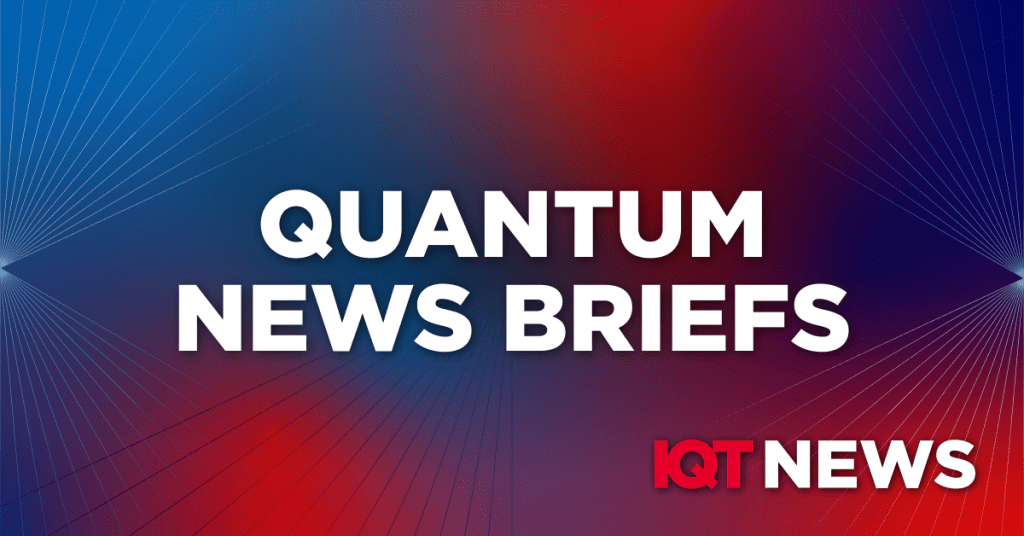Alice & Bob and Thales Develop Quantum Algorithms for Next Generation Aerospace Equipment

Alice & Bob and Thales announced today a partnership to develop quantum algorithms capable of accelerating the simulation of aerospace equipment, such as radar or telecommunications antennas as per the September 19 news announcement.
These algorithms will be developed for the new generation of “error resilient” quantum computers, known as FTQCs (Fault Tolerant Quantum Computers). Quantum computers can be classified as analog, noisy or fault tolerant. In line with the French government’s recommendation that priority should be given to the latter, Alice & Bob and Thales are today joining forces to make France a frontrunner in the development of mature quantum technology.
The project evaluates whether these computers will be able to exponentially accelerate electromagnetic simulations, opening the door to the optimization of airborne equipment designs for the aerospace industry.
It will also assess accurately what resources will be needed, and therefore give a timeline on the time when quantum computers will be available to achieve this. Alice & Bob and Thales will work on the development of quantum algorithms for advanced electromagnetic simulation then test them on airborne equipment, such as radars and antennas. This will make it possible to estimate the exact number of qubits needed to industrialize and scale up these solutions.
The i-Démo Régions project, part of the France 2030 plan, has a budget of 2.6 million euros over 3 years, and has been accredited by the Systematic competitiveness cluster in the Paris region.
Oxford Ionics and Infineon Technologies to Deliver Portable Quantum Computer to Cyberagentur as Part of €35M Investment
Oxford Ionics, a world leader in trapped-ion quantum computing, today announced that it has won a contract, alongside Infineon Technologies AG, to build a state-of-the-art portable quantum computer for Agentur für
Founded by the German Federal Government, Cyberagentur aims to progress research and innovation in the field of cybersecurity to promote the country’s internal and external security. Cyberagentur will use Oxford Ionics’ portable quantum computer, called MinIon, for application development in national security and defence.
Cyberagentur is specifically focused on applying quantum computing to ‘mobile defence’, meaning it can leverage a compact, lightweight, and energy-efficient mobile quantum computer for security and defence scenarios. These smaller systems are easily deployed, transported, and upgraded in the field – giving nation-states a crucial advantage.
Oxford Ionics is uniquely positioned in the industry to deliver a mobile quantum computer. The company has developed a proprietary technology called ‘Electronic Qubit Control’ – meaning it uses electronics, not lasers, to control its qubits. This inherently robust technology can then be integrated onto a standard, thumbnail-sized chip produced in today’s semiconductor fabrication facilities. Through this unique approach, Oxford Ionics’ quantum computers can deliver powerful computational capabilities within an industry-leading small physical footprint where that is important for the particular needs of an organisation.
In Other News: Yahoo Finance News Reports “Bluefors Expands its U.S. Production Plant”
Bluefors, a Finland-based producer of cryogenic measurement systems for quantum technology, has inaugurated its expanded production facility in Syracuse, New York as per Runjhun Pathak in September 17 YahooFinanceNews The new development will produce cryocoolers under the Cryomech brand at a higher capacity, improve its research and development capabilities, and produce dilution refrigerators for the first time in the US.
The facility, built first in 2020, will increase the output at Bluefors’ Syracuse facilities by nearly 45%.
Bluefors CEO Jonas Geust remarked that the expansion made the firm the “biggest manufacturer of dilution refrigerators” in the US. The investment is meant to “support the growth of the quantum sector and [help] advance the industrial development of quantum technologies in North America.”
In Other News: JDSupra reports “Commerce Announces New Trade Controls Affecting Quantum Technologies and AI Developers”
On September 5, 2024, the Department of Commerce announced an interim final rule (IFR) implementing export controls on quantum computing technology and other advanced technologies. The IFR is part of the United States’ broader effort to control the export of sensitive technologies. BIS hopes these controls will bring the United States into alignment with allies that have similarly restricted the export of these technologies, such as Japan and the Netherlands.
On September 9, 2024, BIS released a Notice of Proposed Rulemaking outlining a new reporting requirement for AI developers and certain computer service providers related to large dual-use foundation AI models and activities exceeding specified, very high computational capability. The proposed rule would obligate such organizations to provide BIS with quarterly reports.
CO Governor Polis & Department of Commerce Break Ground on New Quantum Tech Park in Arvada
Half of the $41 million Economic Development Administration Tech Hub award will go towards critical equipment and capabilities to establish this site. This amount will be matched by $22 million from the state of Colorado/
The site was purchased by the Colorado School of Mines, which is dedicating it entirely to quantum technologies and partnering with Elevate Quantum (EQ) to continue growing Colorado’s quantum industry.
The park will support critical rapid prototyping, low-volume manufacturing, and workforce training. The park will also be an important resource for quantum companies that locate on site, allowing them to get the ground lease into perpetuity, as well as access to state and local tax incentives for anything they build on the site.
